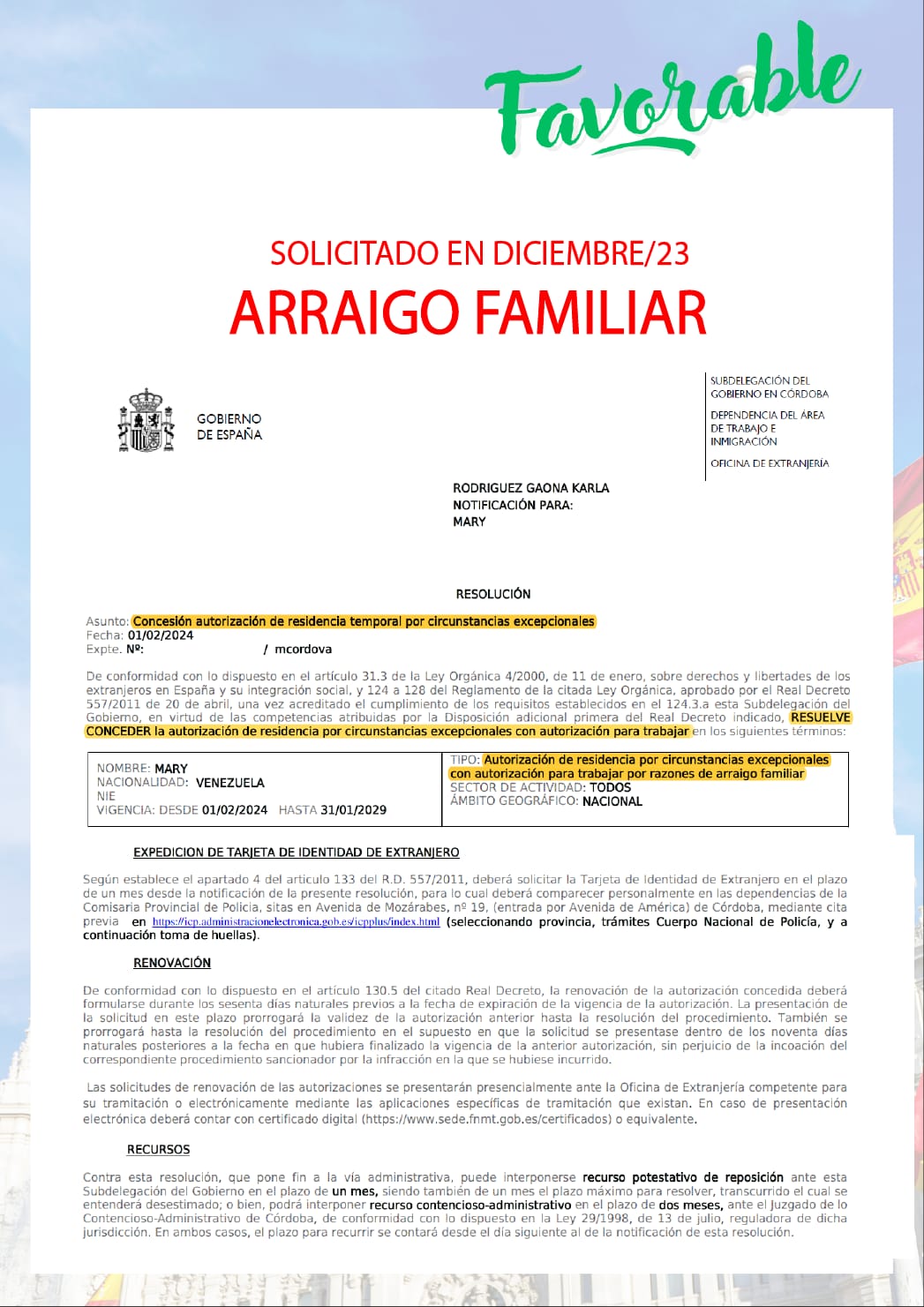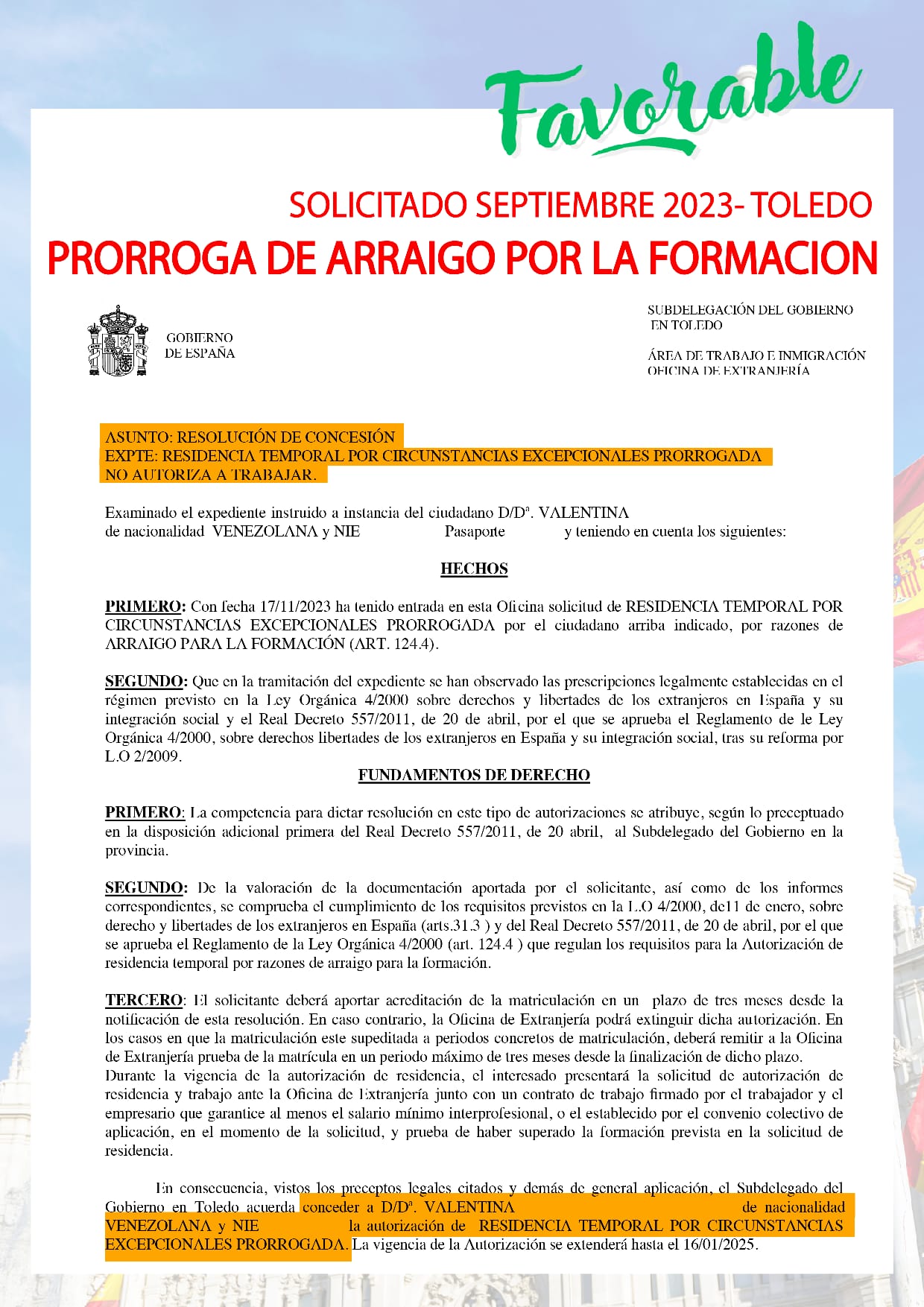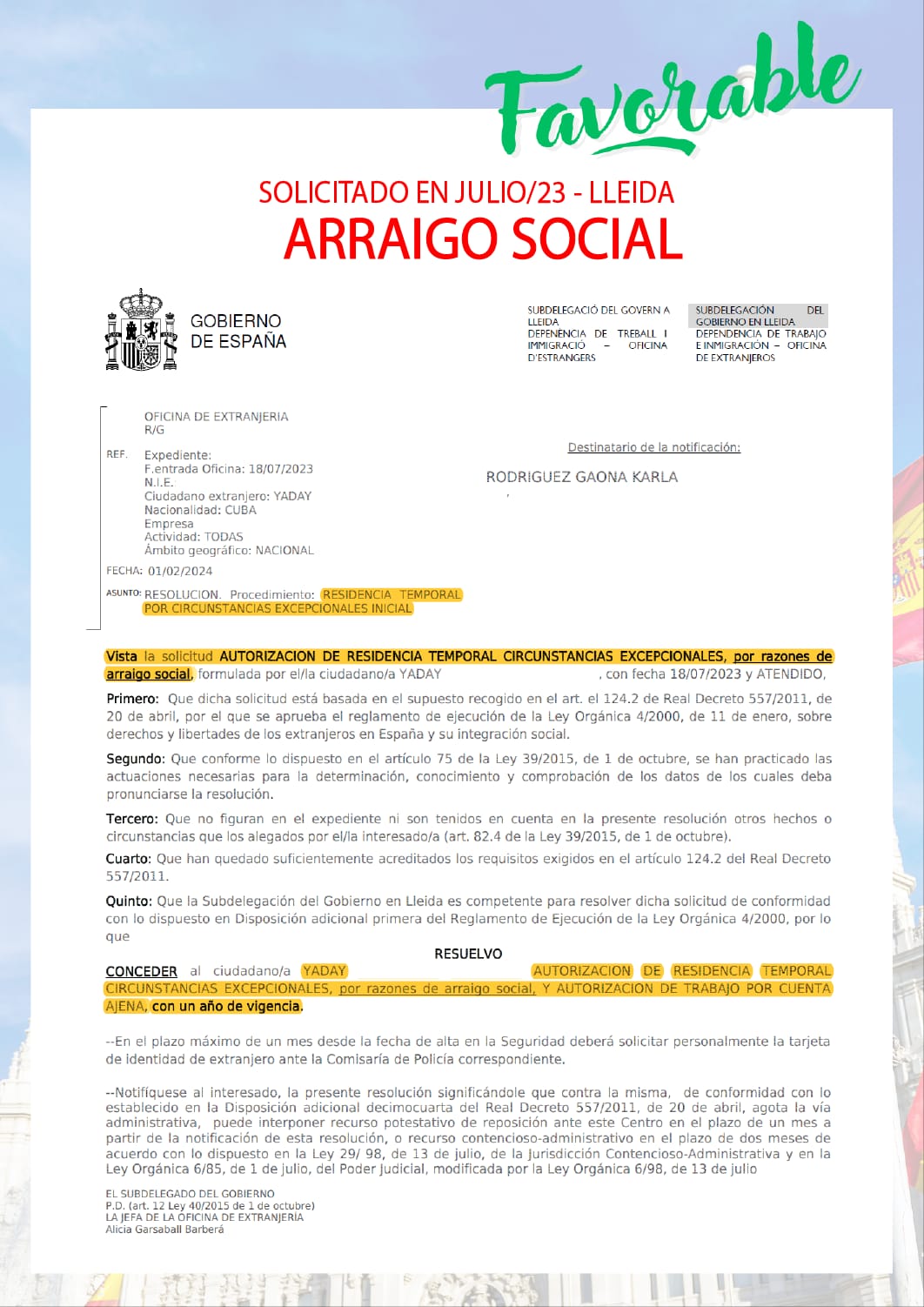Did you know that there are different types of exceptional residences And without having to comply with the usual requirements for entry and stay? Spain offers several ways for those who seek to settle in the country, with the "arraigo" (rootedness) as one of the most valued options. Arraigo allows you to obtain a temporary residence permit for employment, social, family or training reasons. In this post, we will break down each of these options, helping you to understand how you can benefit from these opportunities... I hope you find it interesting and useful. Let's get started!

What are exceptional residences and for whom are they intended?
They are a type of residence which is granted to foreigners who are in an irregular situation in Spain and who have family, work, social or educational ties in the country. The regulations governing exceptional residences are based on the principle of arraigo, which recognizes the right of foreigners to regularize their situation when they have established a relationship of integration with Spanish society.
Remember that you can always contact us from anywhere in the world.
Labor Roots
It is an authorization of residence that may be granted to foreign nationals who are in the country of origin. irregularly in Spain, have been continuously in Spain for a period of at least five years. minimum of two years and have had an employment relationship for at least six months.
Requirements
- Not be a citizen of a European Union member state.European Economic Area or Switzerland, or family members of citizens of these countries to whom the Union citizenship regime applies.
- No criminal record in Spain and in their previous countries of residence, during the last five years, for offenses existing in the Spanish system.
- Not be prohibited from entering Spain and not appear as rejectable in the territorial space of countries with which Spain has signed an agreement in this sense.
- Not foundif applicable, within the period of commitment not to return to Spain that the foreigner has assumed when returning voluntarily to his or her country of origin.
- Have stayed continuously in Spain for a minimum period of two years.. Continuous permanence is understood to mean that the absences have not exceeded 90 days in the last two years.
- Power of Attorney prove the existence of employment relationships whose duration is not less than six months.
Social Roots
This modality is perfect for those who are in Spain for a minimum period of three years and have an employment contract or contracts and either have family ties in Spain or are socially integrated.
Requirements
- Not be a citizen of a European Union member state.European Economic Area or Switzerland, or family members of citizens of these countries to whom the Union citizenship regime applies.
- No criminal record in Spain and in their previous countries of residence during the last five years for offenses existing in the Spanish system.
- Not be prohibited from entering Spain and not appear as rejectable in the territorial space of countries with which Spain has signed an agreement in this sense.
- Not foundif applicable, within the period of commitment not to return to Spain that the foreigner has assumed when returning voluntarily to his or her country of origin.
- Have stayed continuously in Spain for a minimum period of three years.. For this requirement to be met, absences from Spain during this period cannot exceed 120 days.
- Have family ties with other resident aliens (spouse or registered domestic partner, ascendants or descendants in first degree and direct line) or else, submit a report of roots proving their social integration In the event that the report has not been issued within 30 days, a circumstance that must be duly accredited by the interested party, this requirement may be justified by any means of proof admitted by law.
- An employment contract signed by the employee and employer.The Company has a minimum wage, which guarantees at least the minimum interprofessional salary or the salary established, if applicable, in the applicable collective bargaining agreement.
Family Roots
This exceptional residency applies in different circumstances, including:
- In the case of parent or guardian of a minor of Spanish nationality, or a person who provides support to a Spanish person with a disability.
- In the case of the spouse or accredited domestic partner of a Spanish citizen, dependent ascendant over 65 years of age or under 65 years of age, dependent descendant under 21 years of age or over 21 years of age, of a Spanish citizen, or of his or her spouse or domestic partner.
- In the case of children of a father or mother who were originally Spanish.
Rooting for Training
This residency is intended for foreigners who are in Spain and have stayed continuously during two years, allowing the obtaining of an authorization to carry out a training course, making the obtaining of a residence and work permit conditional upon the completion of the training course and the presentation of an employment contract. It is essential that the foreigner:
- Commit to training:
- regulated for employment or to obtain a certificate of professionalism, or a training leading to obtaining a certificate of technical aptitude or professional qualification..
- or, within the scope of the university continuing educationCommit to take courses to broaden or update training or professional competencies and skills, as well as other continuing education courses.
What are some frequently asked questions about exceptional residencies?
Some of the most frequently asked questions that arise about exceptional residencies are as follows:
What is the difference between family roots and social roots?
The main difference is the type of relationship with the Spanish citizen. In the case of family roots, it is a family relationship by blood or affinity, such as a spouse, domestic partner, child, father or mother. In the social roots, it is a link of social integration, which is demonstrated with a report of social insertion issued by the city council or the autonomous community where the person resides. In addition, family roots do not require a job offer, while social roots do.
What happens if I do not renew my exceptional residency?
If you do not renew your exceptional residency, you will lose the right to reside and work in Spain, as well as to access public services and health care. In addition, you could face legal and administrative problems for not complying with the immigration regulations. Therefore, I recommend that you pay attention to the deadlines and requirements to modify your exceptional residence, and that you consult with a professional specialized in immigration and foreigners' issues, who can guide and advise you on your specific situation.
It is essential to understand the specific requirements and procedures for each type of arraigo, as well as to have the right legal support and advice to navigate the process successfully.
Remember that this procedure can be done in Spanish territory, as well as telematically assisted by a lawyer specialized in foreigners.
At our law firm, we are committed to providing you with the advice and representation you need to take advantage of these opportunities. With a thorough understanding of Spanish immigration law, we are here to help you achieve your Spanish residency goals.
So Do not hesitate to contact us for more information and start your way to a new life in Spain with confidence and legal security!
Contact us for more information | Request advice today
Address: Velázquez Moreno 3, Bajo A, CP 36201, Vigo Pontevedra.
Telephone numbers: (+34) 612 48 40 27
Email: info@krabogada.com
Cases of Success







